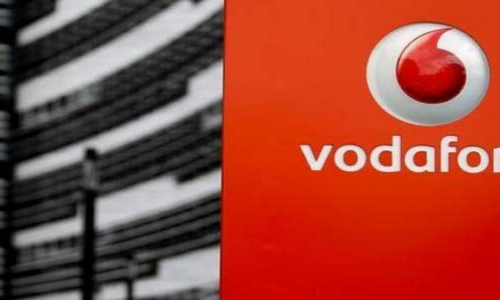Live
- South Korean FM Cho, Blinken hold talks on margins of APEC summit in Peru
- India’s insurance sector growth surpasses China, Thailand: McKinsey
- CLOSE-IN: Indian cricketers from Paupers to Princelings
- Delhi-NCR's air quality remains hazardous for residents
- South Korea, US, Japan to announce establishment of trilateral secretariat this week
- North Korean leader Kim orders mass production of suicide attack drones: KCNA
- Calcutta HC to hear next week plea for CBI probe into death of Jhargram Hospital doc
- Nigeria reports 15,000 AIDS-related deaths annually: Official
- The quicker Mohammed Shami gets fit and is on a flight, it's better for India, says Shastri
- BGT 2024-25: KL Rahul, Sarfaraz Khan suffer elbow in injuries; Virat Kohli taken for scans as India finish first practice session
Just In

Vodafone has agreed to pay $21.8 billion to buy Liberty Global’s assets in Germany and eastern Europe to take on rivals with a broader range of superfast cable TV, broadband and mobile services.
LONDON: Vodafone has agreed to pay $21.8 billion to buy Liberty Global’s assets in Germany and eastern Europe to take on rivals with a broader range of superfast cable TV, broadband and mobile services.
The world’s second-largest mobile operator struck a deal with U.S. cable pioneer John Malone’s Liberty after years of on-off talks to become a pan-European leader able to challenge the dominance of former monopolies such as Deutsche Telekom.
The biggest German provider swiftly emphasised its previously stated opposition to the deal and Vodafone is likely to face a lengthy regulatory review in Brussels.
The companies have pencilled in a mid-2019 completion date for a combination that also includes the Czech Republic, Hungary and Romania.
The deal puts Vodafone back on the front foot in its European heartlands, where it is battling to be one of the few players with the scale to provide the full range of entertainment and communications services that consumers want.
That trend also explains why Liberty is willing to exit such markets where it does not own the full range of services including mobile.
“This transaction will create the first truly converged pan-European champion of competition,” Vodafone’s Chief Executive Vittorio Colao told reporters.
“It is also a transformative combination for Vodafone, we will become the leading next-generation network owner in Europe, serving the largest number of mobile customers and households across the EU.”
Vodafone’s shares were trading up 1.4 percent at 210.3 pence at 0825 GMT.
REGULATORY BATTLE
The deal, Colao said, would not reduce choice because there was no overlap between Vodafone’s existing Kabel Deutschland cable network and Liberty’s Unity Media.
Setting out Vodafone’s likely pitch to regulators, he said the deal would create a “champion of competition” benefitting consumers and governments wanting faster digital infrastructure.
Deutsche Telekom, Europe’s largest telecoms firm, argues that the deal will distort competition in Germany.
The acquisition would create “a giant preening with its convergent technology”, DT’s CEO Tim Hoettges said.
ADVERTISING
“I personally will fight for fair competition for our customers, to ensure that we do not face a disadvantage,” he said on a results conference call.
Liberty Chief Executive Mike Fries said he was confident it would be passed, adding that even when combined, Vodafone and Liberty would be half the size of Deutsche.
“Now more than ever, Europe needs strong competition from scaled national challengers willing and able to invest in next-generation wireless, video and broadband services,” he said.
Under the deal, the British company will give Liberty $12.7 billion in cash and take on the associated debt to create a European network covering 54 million homes.
BIG DEAL FOR VODAFONE
The move marks Vodafone’s biggest deal since it exited the United States in 2014.
Liberty will remain in Britain, Ireland, Switzerland, Belgium, Poland and Slovakia.
Analysts have speculated that the two companies could do a similar deal in Britain, where Liberty own cable group Virgin Media, but Colao said that was not on the agenda.
“Virgin is not on the agenda for the time being,” he said. “We are very happy with the current solution of both reselling BT’s lines and working with CityFibre .”
Vodafone said combining the companies’ operations would generate cost savings of about $632.80 million a year before integration costs by the fifth year after the deal completes.
It will target revenue synergies of more than $1.8 billion by cross-selling multiple services to the combined customer base.
A break fee of 250 million euros will be payable to the British company, in certain circumstances, if the deal does not complete.
The two companies, which already have a joint venture in the Netherlands which is excluded from the deal, restarted talks in February.
($1 = 0.8455 euros)

© 2024 Hyderabad Media House Limited/The Hans India. All rights reserved. Powered by hocalwire.com







